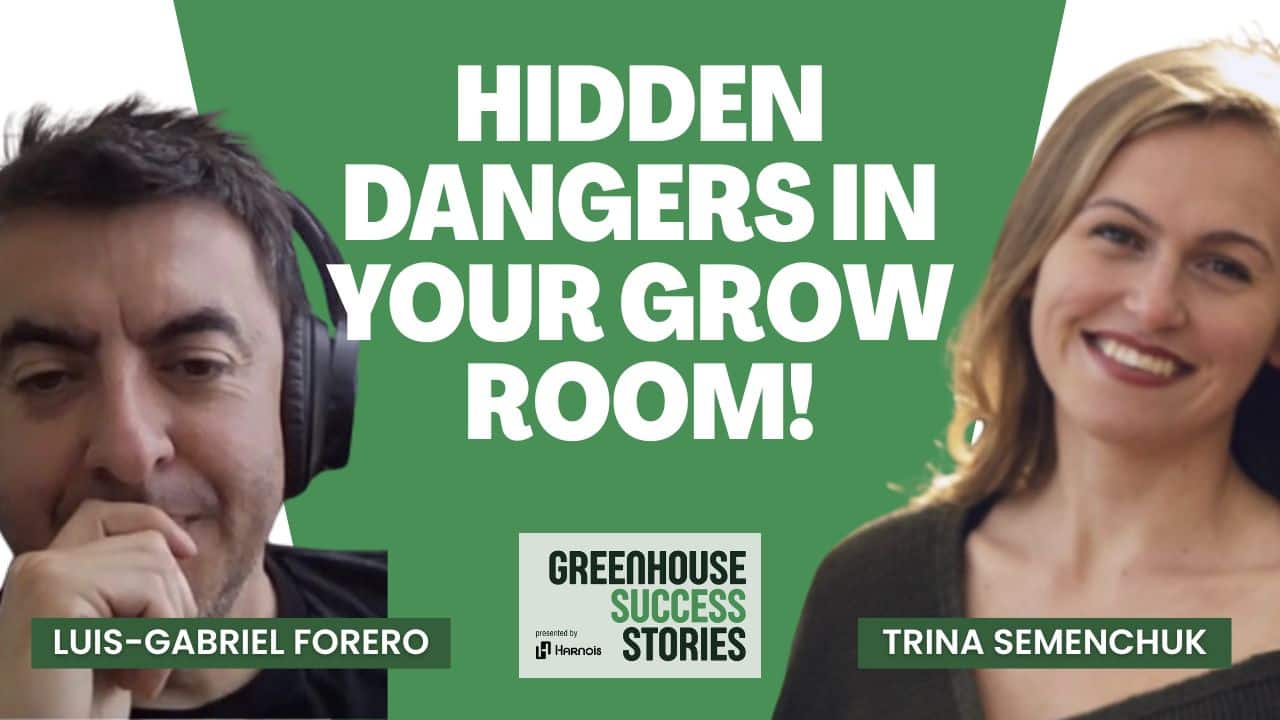Key Takeaways
- Gabriel Forero transitioned from Colombia’s open fields to Alberta’s high-tech greenhouses, bringing global perspective to food production.
- He emphasizes the importance of training staff on why tasks matter, not just how to do them.
- While technology enhances operations, Forero maintains that hands-on experience and intuition remain essential.
- His leadership philosophy centers on empathy, accountability, and communication.
- Forero’s approach has reduced system errors and built a resilient, motivated workforce at Sunterra Greenhouse.
A Veteran Grower Reflects on 18 Years in Growing A Greenhouse Alberta
Gabriel Forero, Head Grower at Sunterra Greenhouse in Alberta, has spent nearly two decades immersed in agriculture — from managing 2,000 hectares of open-field crops in Colombia to leading teams in high-tech greenhouses in Canada. In a recent interview with Greenhouse Success Stories, , presented by Harnois Industries, Forero shared his path from the flower industry in South America to becoming a cornerstone of Canada’s greenhouse food production.
“I’ve been in love with agriculture since university,” Forero said. “It keeps me engaged because in a greenhouse, the moment you get comfortable, something happens. You need to adapt, improvise, and keep moving.”
From Colombia’s Fields to Canada’s Controlled Environments
Forero’s career began in Colombia’s flower sector before transitioning to large-scale food production — managing potatoes, lettuce, cabbage, and carrots across thousands of hectares. After moving to Canada nearly a decade ago, he entered the greenhouse sector, including a stint in cannabis cultivation. While the cannabis industry offered exposure to advanced technologies, Forero found it overly bureaucratic and disconnected from plant science.
“Plants are plants,” he explained. “No matter the crop, the foundation is the same. Technology helps, but it can’t replace people who understand how plants behave.”
People First: Training and Leadership in the Greenhouse
At the core of Forero’s philosophy is education and empowerment. He credits much of his success to shifting from training employees on what to do toward explaining why each action matters. “When people understand why something is important — whether it’s checking irrigation valves or monitoring pH — they make better decisions,” he said.
That shift has paid off. “Three years ago, I had 25 calls every hour,” Forero noted. “Now I have one every eight hours. When I get one now, I know it’s serious.”
Balancing Tech with Human Insight
Despite advances in automation, Forero believes human observation remains irreplaceable. “Some people think sensors will change everything,” he said. “But we already have so much data — the key is how you interpret it. I still prefer manual measurements because I trust my team’s eyes and instincts.”
He described an incident from his early career when drone imaging failed to detect root disease in potato fields: “The sensor said everything was fine, but when we pulled the plants, they were full of sponges. That taught me you can’t just rely on machines.”
Building Trust and Resilience
Forero’s proudest moment came when he had to leave the greenhouse for an emergency trip to Colombia. “I told my team I’d be gone for ten days and didn’t want to see a single dead plant when I came back,” he recalled. “When I returned, everything was perfect. That made me proud — not of myself, but of them.”
His advice for new growers is simple: “Never get comfortable. Always stay alert, and treat your people well. You can’t move a greenhouse alone — it’s all about the team.”
Listen or Watch The Entire Episode To Learn About Having A Greenhouse In Alberta


